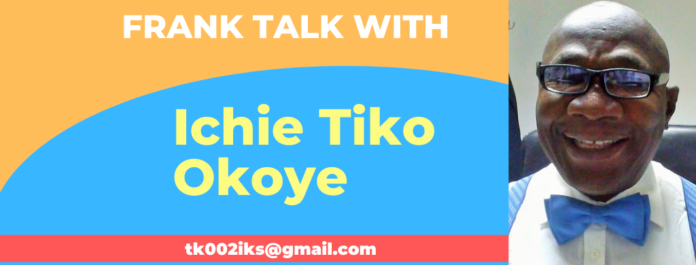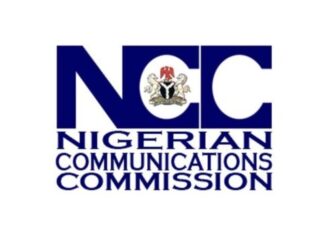Going by the dossier, the official count of Ibo civilians massacred in Benin City alone barely 24 hours after the federal troops arrived on 20 September 1967, according to the US dossier, was roughly 3,000
By Tiko Okoye
- Wrong decisions and missed opportunities 2
According to recently declassified US diplomatic dispatches, the Biafran military command had correctly guessed the axis where Nigerian soldiers would fire the first salvo, and diligently planned a very rude and devastating reception party for the first wave of Nigerian soldiers. A sage once intoned that, “In war – just as in politics and business – is not just your plan that matters, but also knowing your opponent’s plan.” Knowing the plan of your competitors gives you a lead into deciding how to predict their pushback against your action, and enables you to pre-emptively plan counter-measures. That way, you remain several steps – not just one step – ahead of your enemies.
The British High Commissioner, Sir David Hunt, told his American counterpart on 31 May 1967: “Gowon and his immediate military advisers believe they can carry out a successful operation putting their trust in the superiority of the Hausa soldier. A northern incursion would be hastily mounted, ill-conceived and more in the nature of a foray.” The outcomes of the initial military encounters were both predictable and predicted. As noted in the dossier: “In the first few weeks of the war, the Biafrans were clearly on top…(while) at the Supreme Headquarters in Lagos, they were accusing Shuwa, the commander, of not sending enough information about what was going on. Shuwa counter-accused that he was not getting enough and timely orders.”
If things were going so well for the Biafrans, how then did the tide change, culminating in their defeat? Most commentators would immediately point to the effective economic blockade and the mass starvation and deaths it triggered. But the starvation – and even the economic blockade – were themselves products of missed opportunities and defective decision-making.
First, Western nations – following the leading of America and Great Britain – rebuffed all requests made by Nigeria for military assistance. There was the very delicate issue of Shell-BP’s huge investments in the petroleum industry with critical assets, such as drilling rigs and oil wells, still in Biafran hands. The American case was even worse. The dossier noted that “the CIA had predicted a victory for Ojukwu, but American diplomatic and consular corps in Nigeria predicted victory for the Federal side and concluded that a united Nigeria served American interests better than one without the Eastern Region.”
Faced with two conflicting conclusions from an important department and a useful agency, “The American government chose to remain neutral. Dean Rusk, America’s Secretary of State said: ‘America is not in a position to take action as Nigeria is an area under British influence.”
READ ALSO: Ndigbo: Caught betwixt and between in Nigeria (3)
Ndigbo: Caught between and betwixt in Nigeria (2)
Ndigbo: Caught betwixt and between in Nigeria (1)
Prior to that, “Maj. S.A. Alao, Acting Commander of Nigerian Air Force – after George Kurubo defected to the Biafran High Command (to later re-defect to Nigeria) – together with the German adviser, Lt. Col. Karl Shipp, had travelled to many European cities to buy jets. They were unsuccessful. Gowon had written to President Richard Nixon for arms. But the State Department would have none of that. “(A righteously indignant) Gowon replied that he was not requesting for assistance, but a right to buy arms from the American market. That too was rejected.”
What’s crystal-clear was that Biafra was riding the high wave of global sympathy. Can anyone just imagine that Western capitalists with an eye only for profit maximisation, devoid of any moralising, were all rejecting Nigeria’s cash-for-armaments trade deals? I’m fully persuaded that Biafran authorities didn’t move quickly enough to mine the rich vein of Western sympathy and veiled support until it was too late in the day.
And then what I consider as the ultimate game changer: Enter the Russians! The American dossier reported that “Frustrated by the stonewalling by Western nations, Gowon approached the Soviet Union at the instance of Awolowo, the ‘acting prime minister’ as he was called in diplomatic circles.” And he struck gold! But it is pertinent to note that it was the Biafrans who actually first made a liaison with Soviet leaders!
We now know from the declassified American dossier that “According to a secret cable – dated 24/08/67 – sent by Dr Martin Hillenbrand, American Ambassador in East Germany, to his counterpart in Lagos, MCK Ajuluchukwu, Ojukwu’s special envoy, met Soviet Ambassador to Nigeria, Alexandr Romanov, in Moscow as early as June 1967. Romanov said that for USSR to recognize Biafra and supply it arms, the latter had to nationalize the oil industry. Ojukwu refused, saying that he had no money to reimburse the oil companies and that Biafrans did not have the expertise to run the oil installations.”
Whatever be the reason or reasons, rejecting the Soviet deal was a no-brainer and Biafra’s loss immediately translated into Nigeria’s gain. About a month later, when Awolowo became aware of what had transpired in Moscow, he got Gowon to send Anthony Enahoro, Federal Commissioner for Information and Labour, to Moscow. According to the American dossier, “Enahoro signed a cultural agreement with Moscow and promised to nationalize the oil industry, including its allied industries, once they got arms to recapture them from the Biafrans.” It was a total acceptance of the same very deal Ojukwu had dismissed offhand!
And pronto! “Within days, 15 MiGs arrived in sections in Ikeja and Kano airports, along with teams of assembling technicians and 26 military advisers.” After this development, officers like Lt. Col. Oluwole Rotimi, Quartermaster-General of the Nigerian Army and Lt. Col. Ikwue, the Commander of the Nigerian Air Force, returned to Europe with a fat chequebook where they were now welcomed with wide, open arms. And armaments started flooding into Nigeria from Norway, Czechoslovakia, Germany, UK and the USSR. India and Israel also sent military engineers and pilots to assist the Nigerian military.
The same monstrous miscalculation re-enacted itself with Cameroon. All Cameroonian President Ahmadu Ahidjo wanted to render Nigeria’s economic blockade ineffective was a pledge to recognize his nation’s ownership of the resources-rich Bakassi Peninsula. But while Ojukwu was pussy-footing, Gowon rushed in to strike a deal. And not even the highly influential French President Charles de Gaulle, who was supportive of the Biafran cause, prior to being succeeded by Georges Pompidou when the former died in 1969, could get Ahidjo to change his mind. Another wrong decision and missed opportunity.
“And then suddenly,” the dossier noted, “something was happening to Biafran soldiers, which the Federal troops observed but could not explain…Although the momentum (had swung back to) the Federal side, they knew their victories were not only because of their military superiority. At critical stages of battle, even when the Biafrans were clearly winning, they suddenly withdrew.
“An instance was on 15 July 1967, to the west of Nsukka on the route to Obolo. According to a conversation Col. J.R. Akahan, Nigeria’s Chief of Army Staff, had with the British Defense Advisor, the Nigerian infantry companies of the 4th Battalion, totally unaware of the presence of the 8th Battalion of the Biafran army were buried under a hail of bullets and mortar.
“Yet, the Biafran forces (inexplicably) began to retreat. This enabled the remnants of the federal infantry companies to regroup and successfully counter-attack. Even more senior Biafran commanders that should have been aware that the area had come under federal control were driving into the waiting arms of the federal side. (Chukwuma) Nzeogwu and Tom Bigger – Ojukwu’s half-brother – (and possibly the iconic poet, Maj. Christopher Okigbo as well) were victims of the mysterious happening.” Ojukwu made a special announcement to Biafrans the very next day that suggested that he was very much aware that fifth columnists had treacherously infiltrated the Military High Command.
Still, no effectual corrective measures were taken, and the sabotage ultimately reared its head in the form of the back-breaking perfidy in the Midwest Region perpetrated by Brig. Victor Banjo and his enablers (a spectacular tale of breach of trust, overreaching ambition and treasonous betrayal would be told later, drawing heavily from the American dossier). Going by the dossier, the official count of Ibo civilians massacred in Benin City alone barely 24 hours after the federal troops arrived on 20 September 1967, according to the US dossier, was roughly 3,000 (1,287 given by the director of Benin City cemetery along Ifon Road and 989 provided by a Catholic missionary with the Benin Public Service).
“The only town that was an exception (among non-Igbo Midwestern towns and villages) was Ehor (in old Ishan Division), where even after the federal troops arrived, the local populace was protecting the Igbo soldiers and tried to confuse the federal troops.” Is there any ancestral affinity between Ehor and any town in Igbo land that necessitated their taking such a very grave risk? Ohanaeze, over to you to do the right thing with Ehor.
- This multiple-part series concludes next week with a recommended road map for rediscovering Igbo pride and assuming our rightful place within the roped square of the Nigerian political firmament. It will be an explosive reading!












